Micro Inverter | Household Photovoltaic System Solutions
2022-12-28 | Solutions
Micro Household Photovoltaic System Introduction
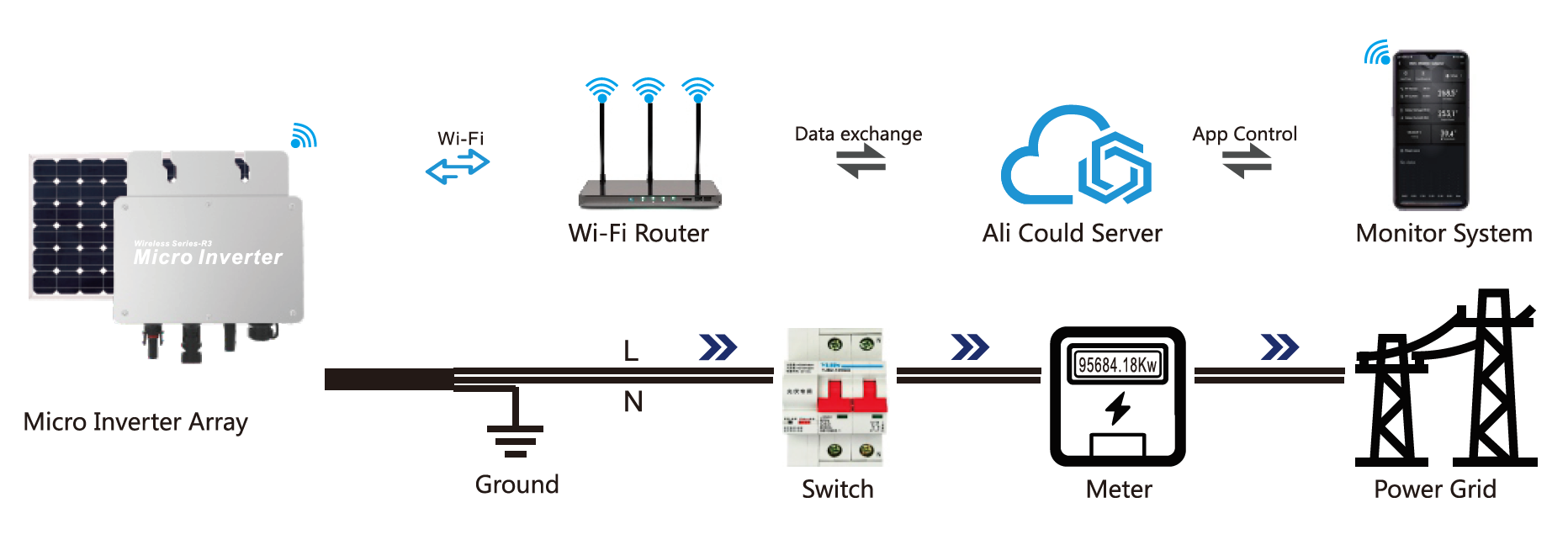
The household photovoltaic system refers to the installation of photovoltaic modules on the top floor of a family house or in the courtyard, and the conversion process is carried out with a module-level inverter, and the new energy is directly used, and the excess electric energy can also be integrated into the grid.
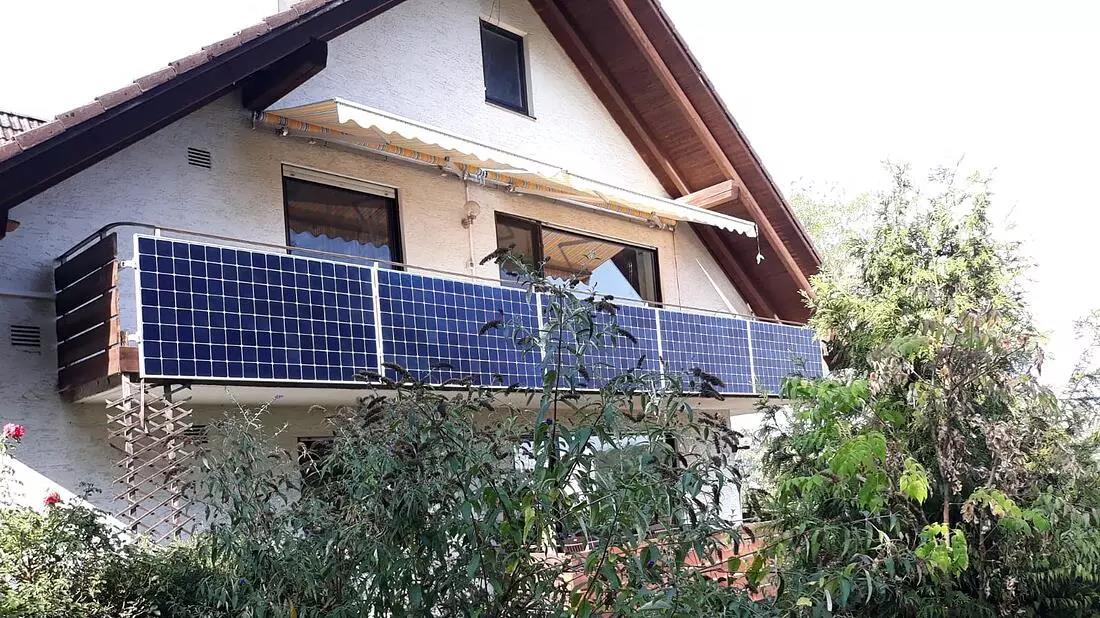
The electricity load of a single household is generally small. As long as a family has a small space such as a balcony or a roof, a household photovoltaic system can be installed, and the electricity generated by a small household photovoltaic system is enough for a family and has a surplus.
Pain points of household photovoltaic system;
Security Issues
If the safety performance of the photovoltaic system is not good, there is a risk of fire, which will not only cause property loss, but also directly affect the return on investment.
Difficult to operate and maintain
If there is a lack of intuitive component-level data, the difficulty of inspection will increase, and it will be difficult to locate the fault location and find the cause of the fault. In some areas, there is a phenomenon that only a few households in a village are equipped with photovoltaics. Relying on manual inspections and inspections reduces the efficiency of operation and maintenance, and also increases the cost of operation and maintenance of power stations. Moreover, the quality of operation and maintenance personnel is different, and there is a lack of effective supervision of related equipment. It is easy for key equipment to operate with failures for a long time, reducing the service life and utilization efficiency of equipment.
Power Generation Efficiency
Trees around the house, water heaters on the roof, etc. will cause shadows and affect power generation efficiency.
In view of the above reasons, household photovoltaics need safe photovoltaic products, intelligent operation and maintenance, and strong power generation efficiency. The potential micro-inverter has the feature of component-level monitoring, which is not only safe and efficient, but also works with the intelligent cloud monitoring platform to monitor the working status of each component in real time.
Product advantages;
Safer
In the traditional photovoltaic system, the point voltage of the DC side of the modules in series is between 200V-1500V, and there are hidden dangers of high-voltage electric shock and arcing fire; the potential micro-inverter system can effectively avoid the electrical safety hazards of the DC side and protect your personal and property safety at all times.
Precise operation and maintenance
Monitor and control the power generation status of each component in real time around the world, quickly locate the fault point and cause of the fault online, and achieve accurate and efficient operation and maintenance.
Efficient power generation
The global priority power generation efficiency, the power generation is 5%-30% higher than the traditional photovoltaic system, the module-level MPPT tracking technology can radically eliminate the barrel effect, not afraid of occlusion, and effectively prolong the power generation time of the system under low light conditions.
High adaptability
Easily cope with different installation scenarios, different orientations, shadow occlusion, and compatibility between different components/inverters, reducing the need for power station transformation and special protection for inverters; the system can be expanded infinitely without any transformation.
High reliability
IP67 protection level, passed the most severe 6000V surge test, the product is more reliable.
Cure the PID effect
The PID effect of components seriously affects the power generation system and increases the burden of operation and maintenance. The maximum DC side voltage of the micro-inverter system is only about 54V, which eliminates the PID effect from the source and guarantees the efficient operation of the system.
Product Description;
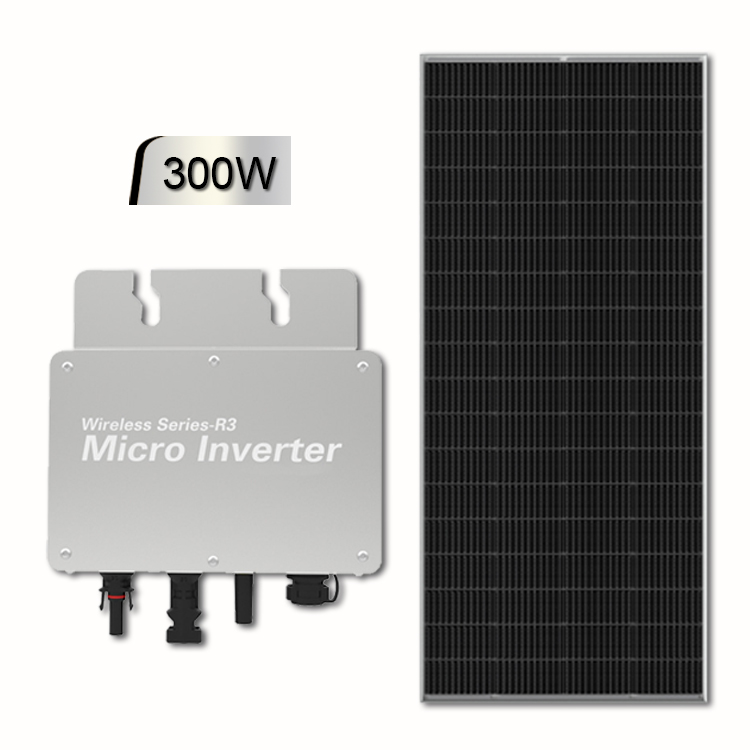 |
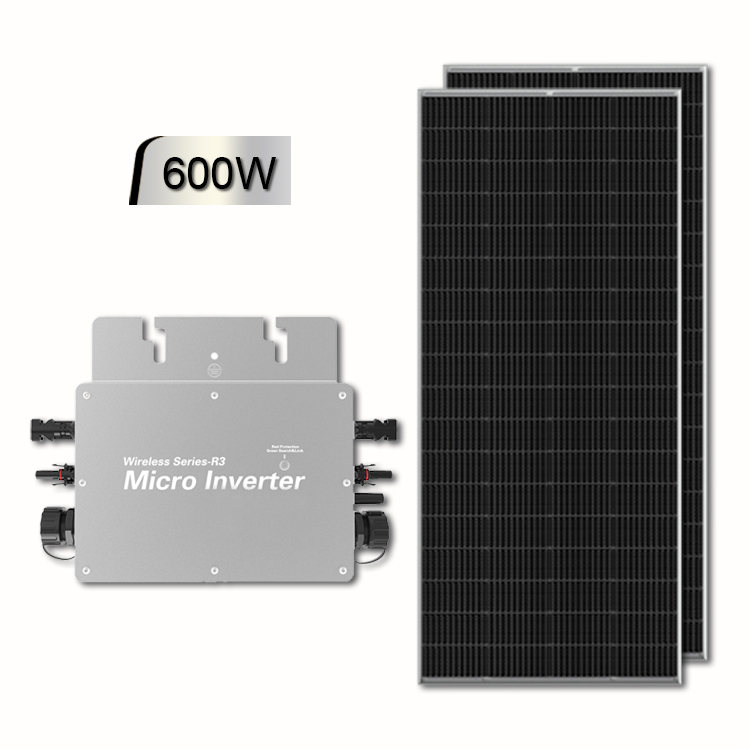 |
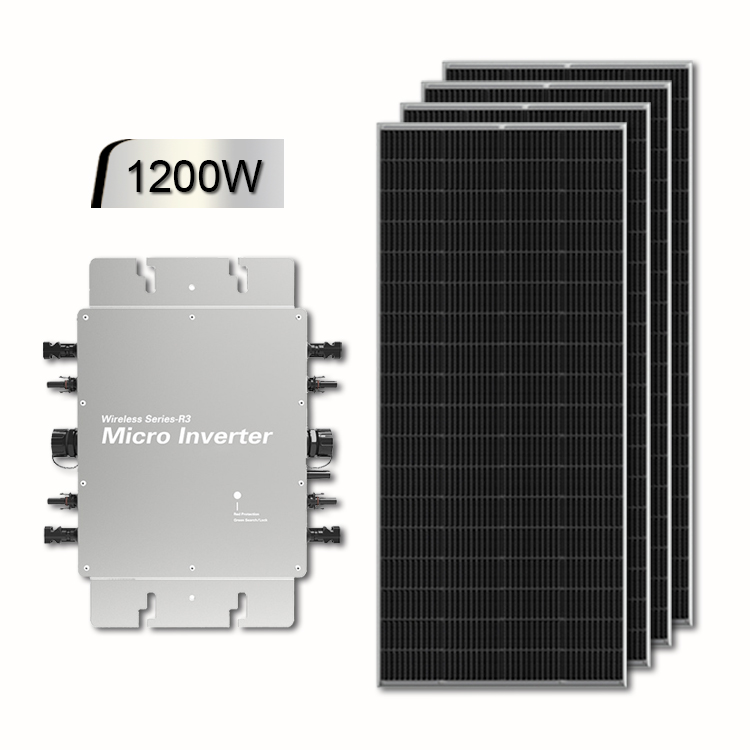 |
| QN-WVC300 | QN-WVC600 | QN-WVC1200 |
Learn More Product Information >>>
| Model | Micro Inverter | Solar Panels | Average Daily Power Generation |
| QN-WVC300 | 300W*1 | 360W*1 | 1.8KW |
| QN-WVC600 | 600W*1 | 360W*2 | 3.6KW |
| QN-WVC1200 | 1200W*1 | 360W*4 | 7.2KW |
Note: The power generation is calculated based on 6 hours of effective sunshine and is for reference only.
Installation Case;
Household low power installation case (QN-WVC300)
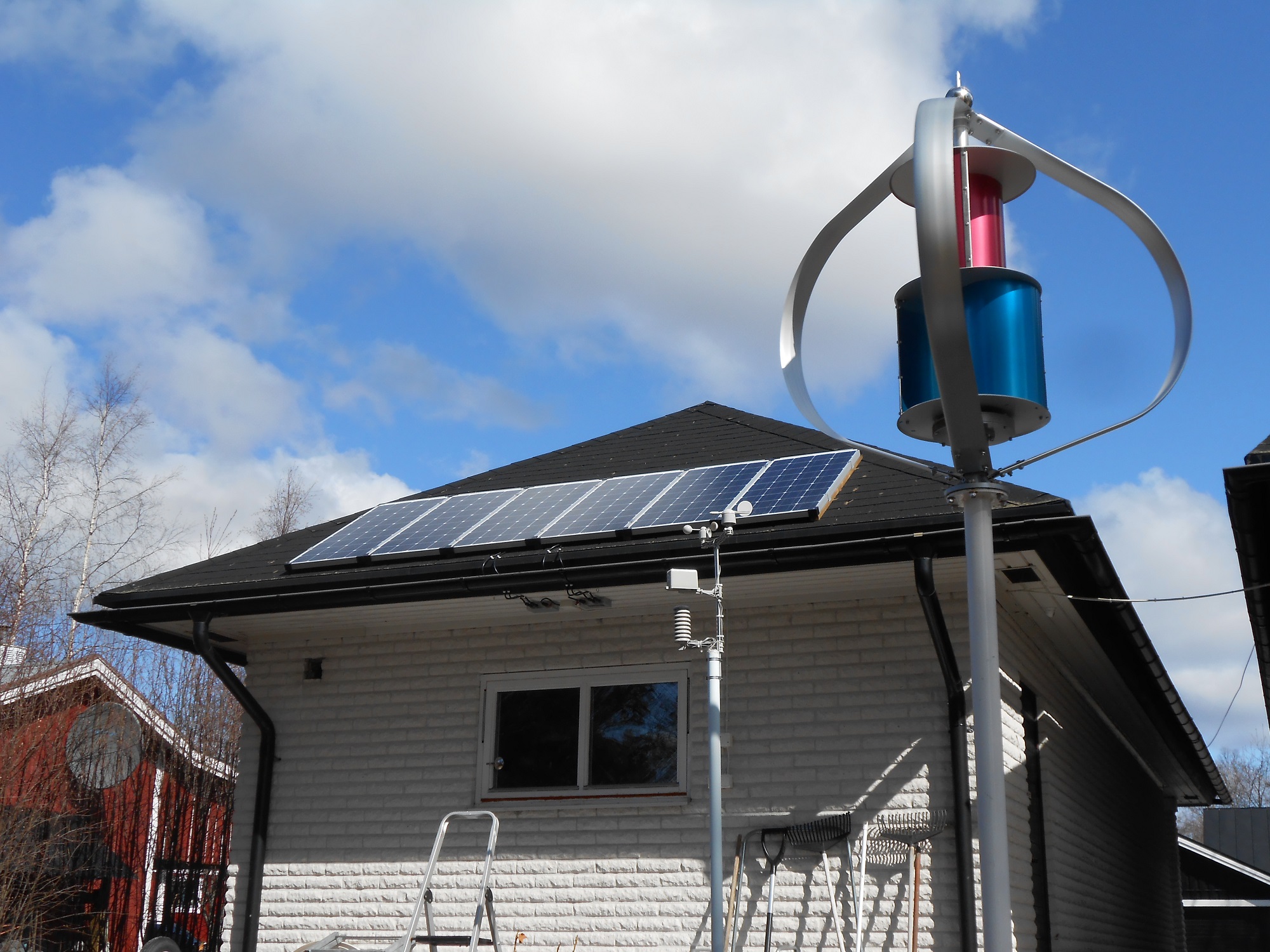 |
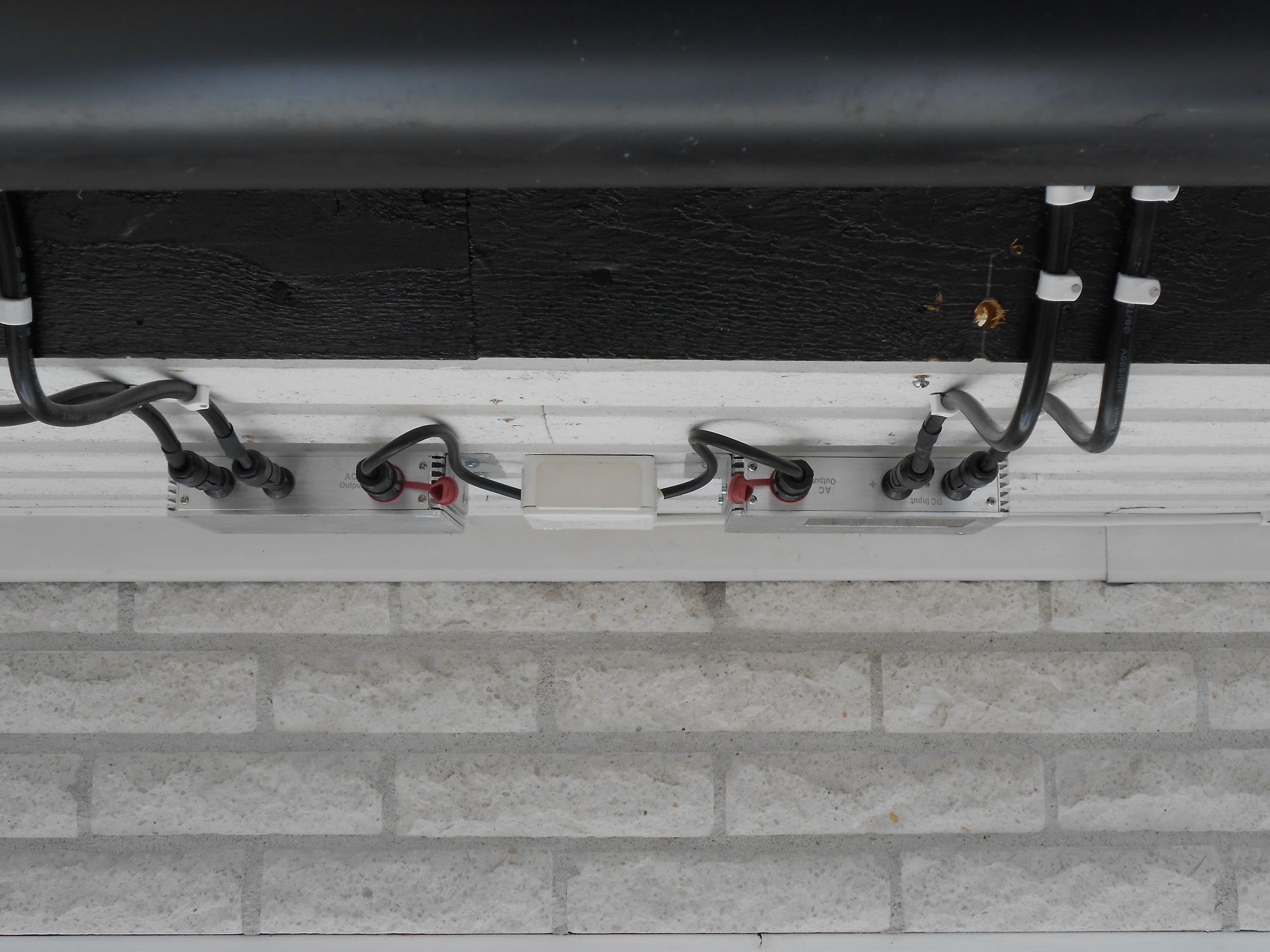 |
| Installation Place | Micro Inverter | Solar Panels | Average Daily Power Generation |
| Sweden | 300W*2 sets | 120W*6 pieces | 3.6KW |
Farm installation case (QN-WVC300)
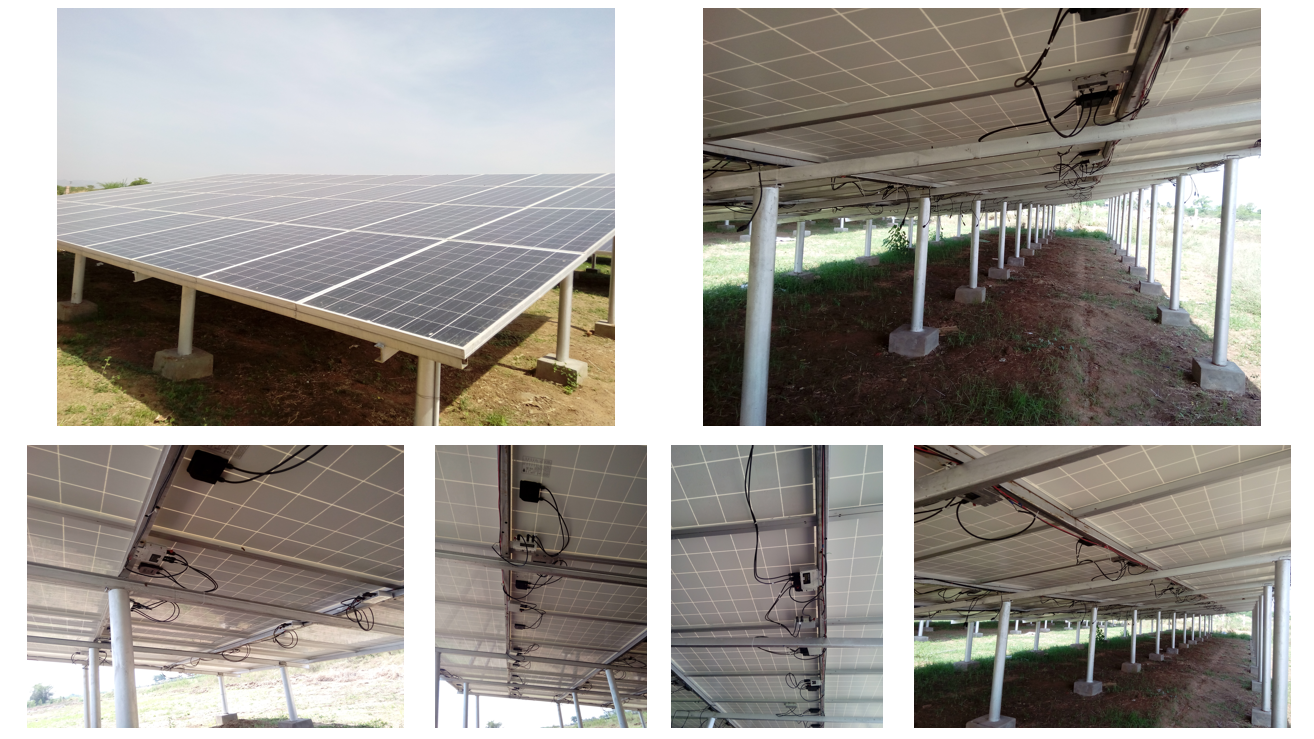
| Installation Place | Micro Inverter | Solar Panels | Average Daily Power Generation |
| India | 300W*44 sets |
360W*44 pieces |
79.2KW |
Factory installation case (QN-WVC600)
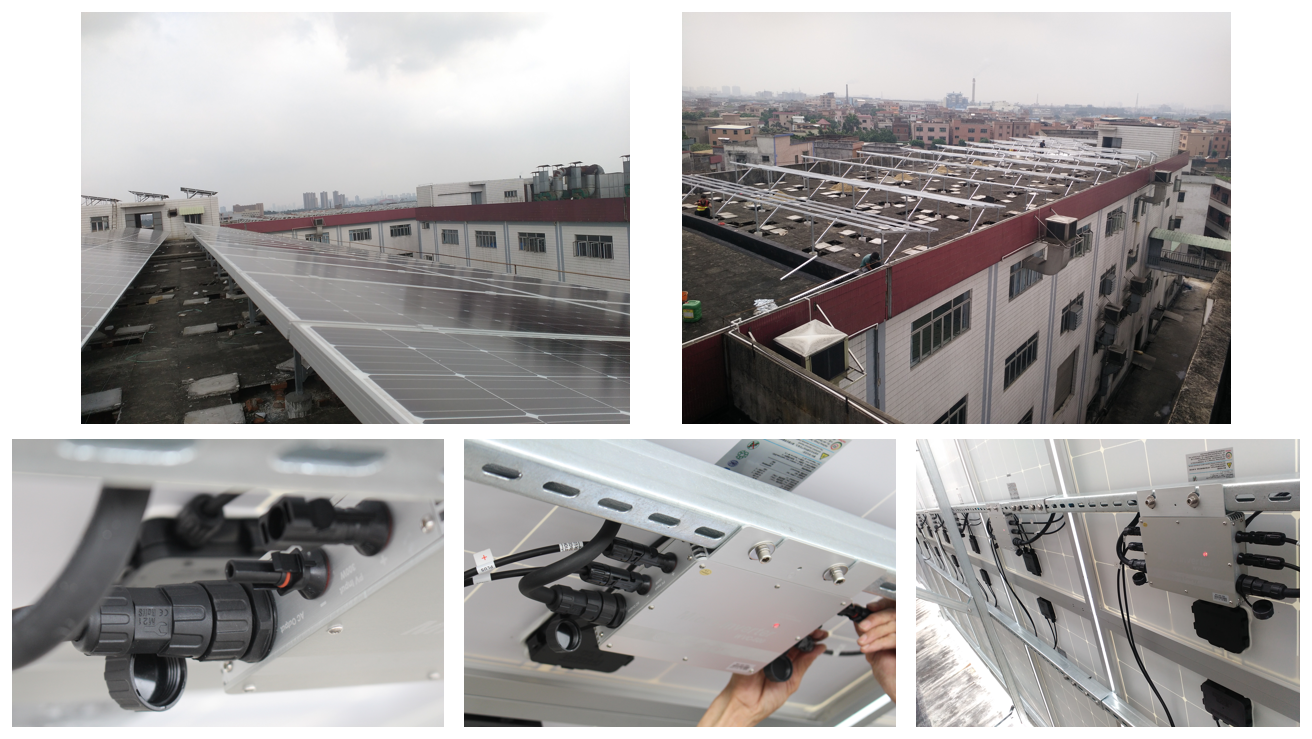
| Installation Place | Micro Inverter | Solar Panels | Average Daily Power Generation |
| China | 600W*60 sets |
360W*120 pieces |
21.6KW |
Household installation case (QN-WVC1200)
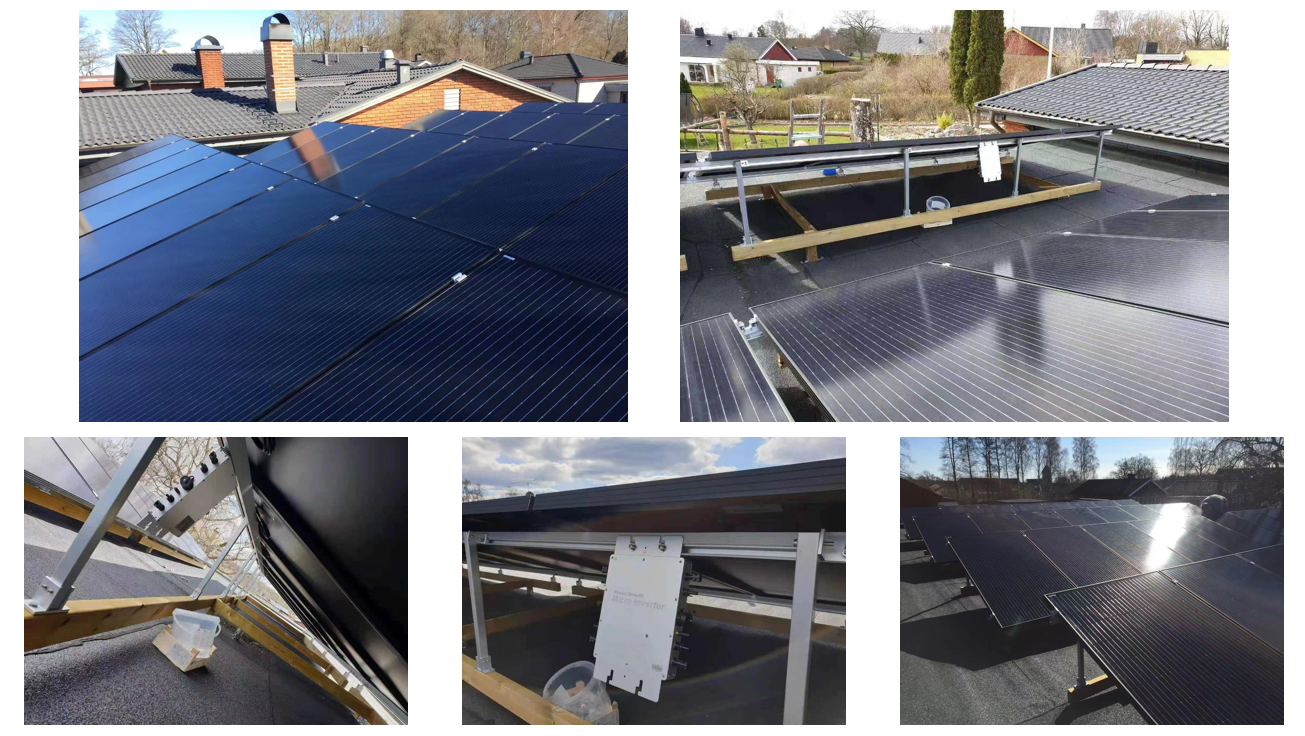
| Installation Place | Micro Inverter | Solar Panels | Average Daily Power Generation |
| Switzerland | 1200W*12 sets |
360W*48 pieces |
86.4KW |
Back To The List
